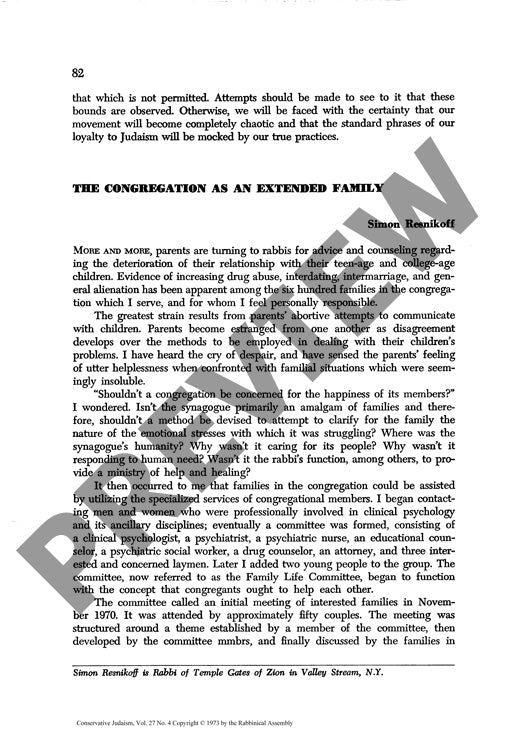The Congregation as an Extended Family
Couldn't load pickup availability
When traditional Jewish families began fracturing under the pressures of drug abuse, intermarriage, and generational conflict in the late 1960s, one synagogue developed an innovative response: transforming the congregation itself into an extended support family. Drawing on the expertise of mental health professionals within the community—including psychologists, psychiatrists, counselors, and social workers—a comprehensive Family Life Committee established structured interventions for six hundred families. The program, launched in November 1970, combined group dynamics, role-playing techniques, and informal discussion sessions, initially engaging fifty couples before expanding to include their children. Operating within the familiar and supportive synagogue environment, participants focused on improving interpersonal communication and emotional expression. Parents reported immediate benefits following initial sessions, demonstrating enhanced understanding of family dysfunction patterns. The program additionally served as a crisis intervention hub, connecting families with professional resources during emergencies. While not a complete solution to family breakdown, this congregational "extended family" model proved effective at strengthening familial bonds and addressing contemporary challenges through community-based support structures.

More Information
-
Physical Description
-
Publication Information
Published 1973
ISBN
-
Publication Credits
Simon Resnikoff

